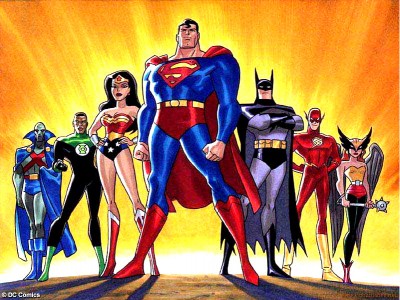THREE THINGS THAT CAN BE LEARNT FROM SUPER HEROES MOVIES.
Iron man, Batman, the Star Wars, Lord of the Rings, Mission Impossible, Die Hard…I love those movies .They always have a happy ending. The objective, which at first seemed impossible, is always achieved. Even better, all the characters improve in the process: developing virtues, increasing self-knowledge, and growing in courage, so that, at the end of the adventure, the hero has forged his personality.
When attending a course in Boston (BCAE) on how to write a compelling script, I realized the importance of the moment when the protagonist must be seen as an underdog, as a loser: darkness everywhere, problems getting worse, discouragement all around… that precise moment when Iron Man has been left without any power in his armor and the villain attacks. There is no way out. These moments are imperative for the script not to be boring and hold the viewer in suspense.
 Someone is a great script-writer when the viewer does not see how the protagonist will come out of that terrible situation. The script is weak when the outcome is obvious. In real life we are all amazingly good script-writers because we normally have no idea of how things are going to finish : that problem or that situation which makes us so worried and overwhelmed. Or worse, those dead spots where boredom and routine try to slowly engulf us.
Someone is a great script-writer when the viewer does not see how the protagonist will come out of that terrible situation. The script is weak when the outcome is obvious. In real life we are all amazingly good script-writers because we normally have no idea of how things are going to finish : that problem or that situation which makes us so worried and overwhelmed. Or worse, those dead spots where boredom and routine try to slowly engulf us.
So here is the first secret: in these films ‘technical’ skills do not matter. Never mind if the hero is Toni Stark, brilliant engineer and millionaire or Bilbo Baggins, a quiet and peaceful hobbit of the Shire; even John McClane in Die Hard is defined as a policeman characterized by being “in the wrong place at the wrong time “. They all succeed in their mission: impossible. (I hope I am not spoiling the end of the movie for you. It annoys me when that happens).
The second secret is that no-one achieves his mission in the same clothes that the hero wore when he began his adventure: the destruction of the costumes (and sets) is an indispensable part of the process. The same happens in life. The fight is so hard that there is no time to think about the shreds of clothing and the pieces of ourselves that are left in the fray. From achieving the impossible mission out comes always a deeper, better, more mature character because he has left his selfishness, comfort, ego and vanity in the shreds.
And finally here is the most important secret. Frodo Baggins does not leave the Shire in search of a better place to live a more comfortable hobbit-hole(1) . John McClane ( Die Hard ) , Tony Stark ( Ironman ), Bruce Wayne ( Batman, all are torn from their comfort for a mission impossible.
So my favorite heroes leave their homes , their comfort box (as they now call it in a very flamboyant way) because they have a mission: to destroy the ring, get rid the world of evil aliens or getting rid of perverse governors controlling the city of Gotham .
Keeping all eyes on the goal of the mission is what keeps them alive despite all the disasters, despite having no qualifications to do so, despite being at the stage of being losers, despite having the armor shattered. And the funny thing is that the mission is usually very difficult (it has been qualified impossible from the beginning of this post); our heroes could avoid it and say “what is the purpose of getting into trouble?”. But the mission challenges the best of themselves.
To paraphrase what I was told in my coaching school
This idea is key to making good out of any business. It is the idea on which I base my work plan in the various companies with which I collaborate. A clear, inspiring, comprehensive, challenging , mission is the shaft, the engine of the college, the educational enterprise or university .
Whenever you feel that there is something in your life, in your business, that bores you , that is not working , something from which you’d want to run away , make it your mission impossible, and, what a surprise! You will see that that impossible goal makes you happy while you’re struggling to get it done.
[1] Some friends know a lot about this. 😉 ask Janet.

Leave a Reply